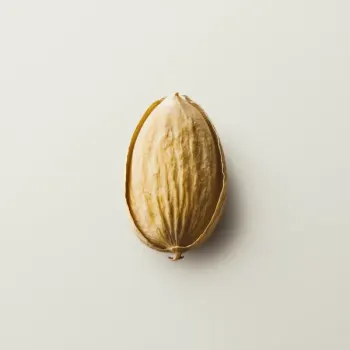Pumpkin seeds (pepitas) and sunflower seeds are edible seeds often used in cooking for their distinct textures and flavors. Pumpkin seeds are chewy and nutty, ideal for a pronounced presence in dishes, while sunflower seeds offer a crunchy, mild taste, suitable for complementing various recipes subtly.

Pumpkin seeds, also known as pepitas, are the small, flat, green seeds found inside pumpkins. They are commonly roasted and can be eaten with or without the shell.

Sunflower seeds come from the center of the sunflower plant. They have a mild, nutty taste and a firm but tender texture, and are frequently consumed as a snack, either shelled or unshelled.
Pumpkin seeds are larger, have a chewier texture, and a more subtle sweetness compared to the smaller, crunchier sunflower seeds. They also differ in nutritional profile, with pumpkin seeds being higher in zinc and magnesium, while sunflower seeds contain more Vitamin E and selenium.

Your ultimate Recipe Box, Meal Planner, and Cooking Class all in one
In trail mixes, pumpkin seeds add a chewy texture and a burst of magnesium. They pair well with dried fruits and nuts, offering an earthy balance to sweeter components. Sunflower seeds provide a satisfying crunch in trail mixes. Their mild flavor complements a variety of nuts and fruits without overpowering the mix.
Pumpkin seeds can be incorporated into breads, muffins, and cookies for added texture and nutrients. They are best used when you want a more pronounced seed presence and a chewy bite. Sunflower seeds are versatile in baked goods, adding a nutty flavor and crunchy texture to recipes like granola bars, whole-grain breads, and crackers.
Pumpkin seeds bring a rich, nutty flavor to salads. They work particularly well in autumnal salads with squash and hearty greens. Sunflower seeds are a common addition to summer salads, offering a delicate crunch and a subtle buttery taste that pairs well with fresh vegetables and vinaigrettes.
Both pumpkin seeds and sunflower seeds are rich in healthy fats, proteins, and various vitamins and minerals.
| Nutrient | Pumpkin Seeds ( per Ounce ) | Sunflower Seeds ( per Ounce ) |
|---|---|---|
| Fat | 13.5g | 14g |
| Zinc | 2.2mg | |
| Protein | 8.5g | 5.5g |
| Calories | 158 | 163 |
| Magnesium | 168mg | |
| Carbohydrates | 1.7g | 6.5g |
Both seeds have their unique health benefits. Pumpkin seeds are higher in zinc and magnesium, while sunflower seeds offer more Vitamin E and selenium. Choose based on your dietary needs.
Yes, they can be substituted for one another in most recipes, but this will alter the recipe's texture and flavor profile.
Both seeds can be part of a weight loss diet due to their high fiber and protein content. Moderation is key, as they are also high in calories.
Both should be stored in airtight containers in a cool, dark place. Refrigeration can extend their shelf life.
Yes, both can be eaten raw, but roasting may enhance their flavor and make them easier to digest.